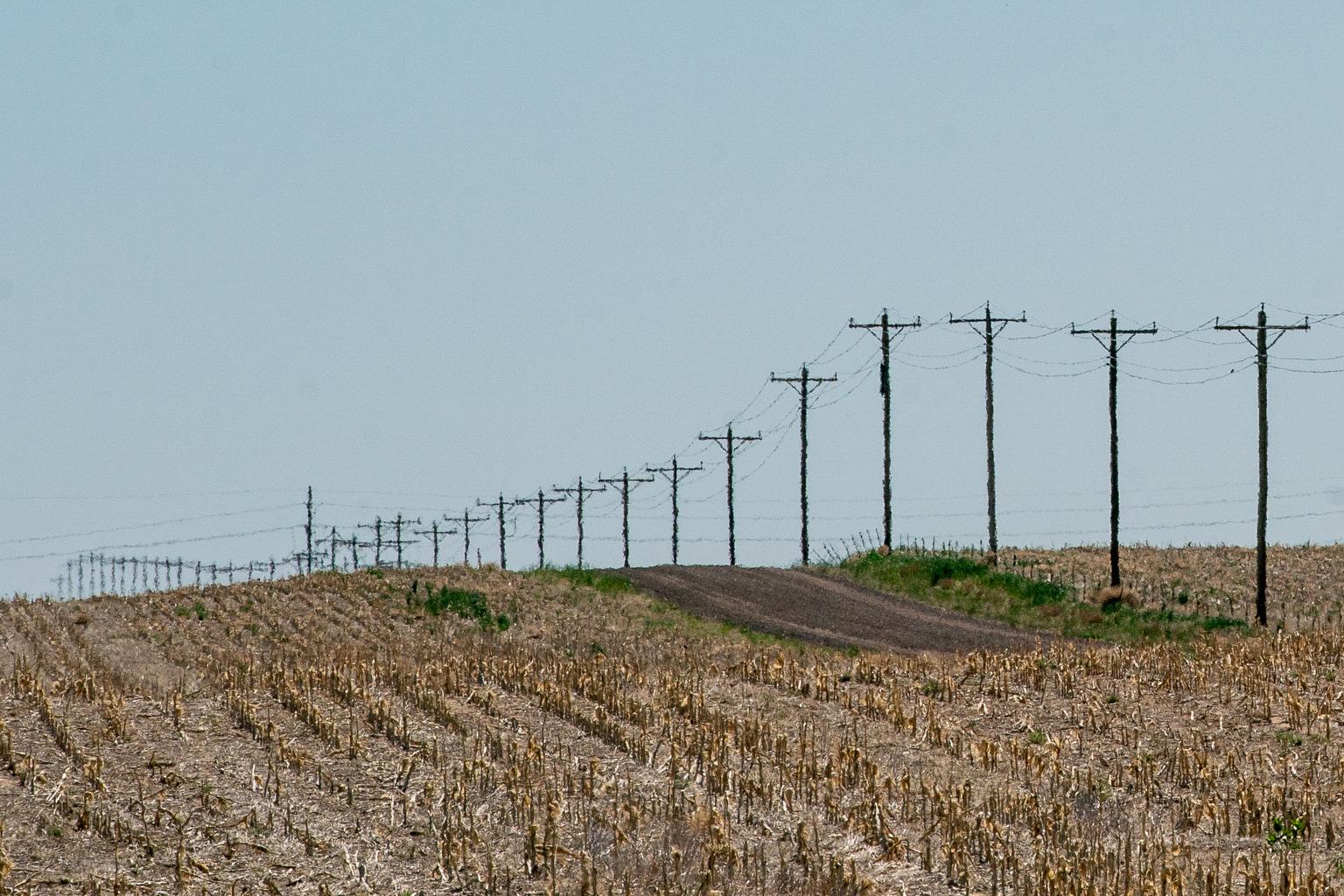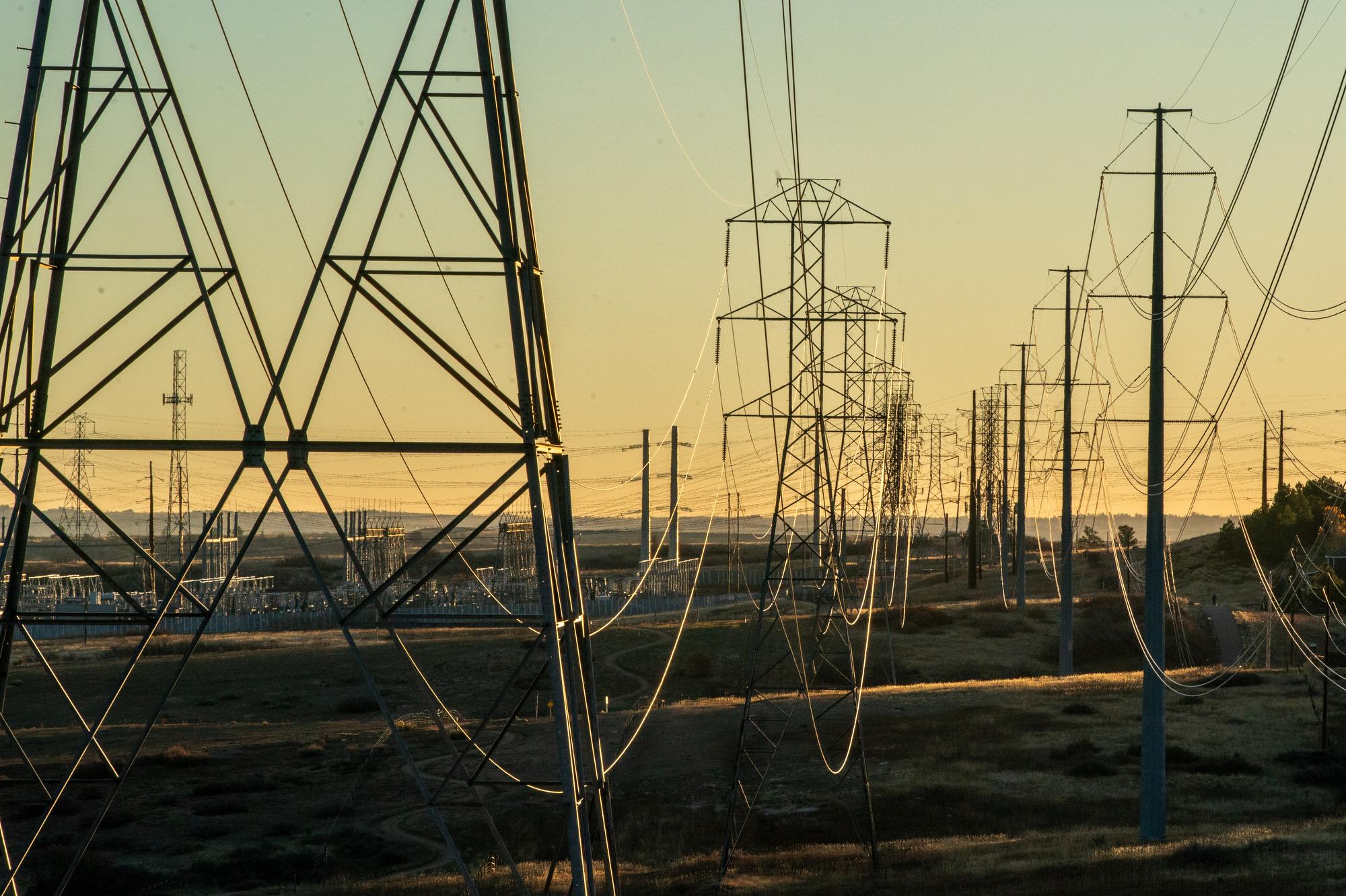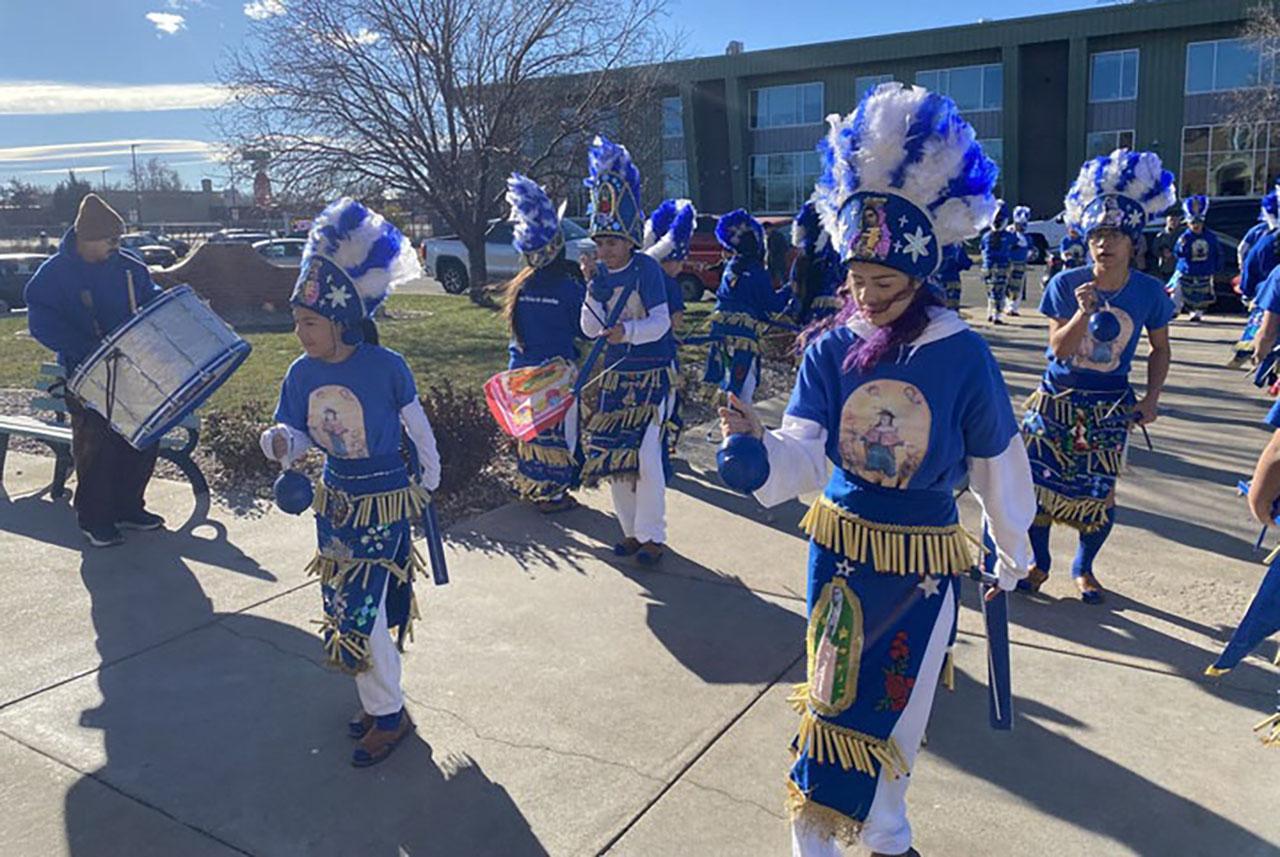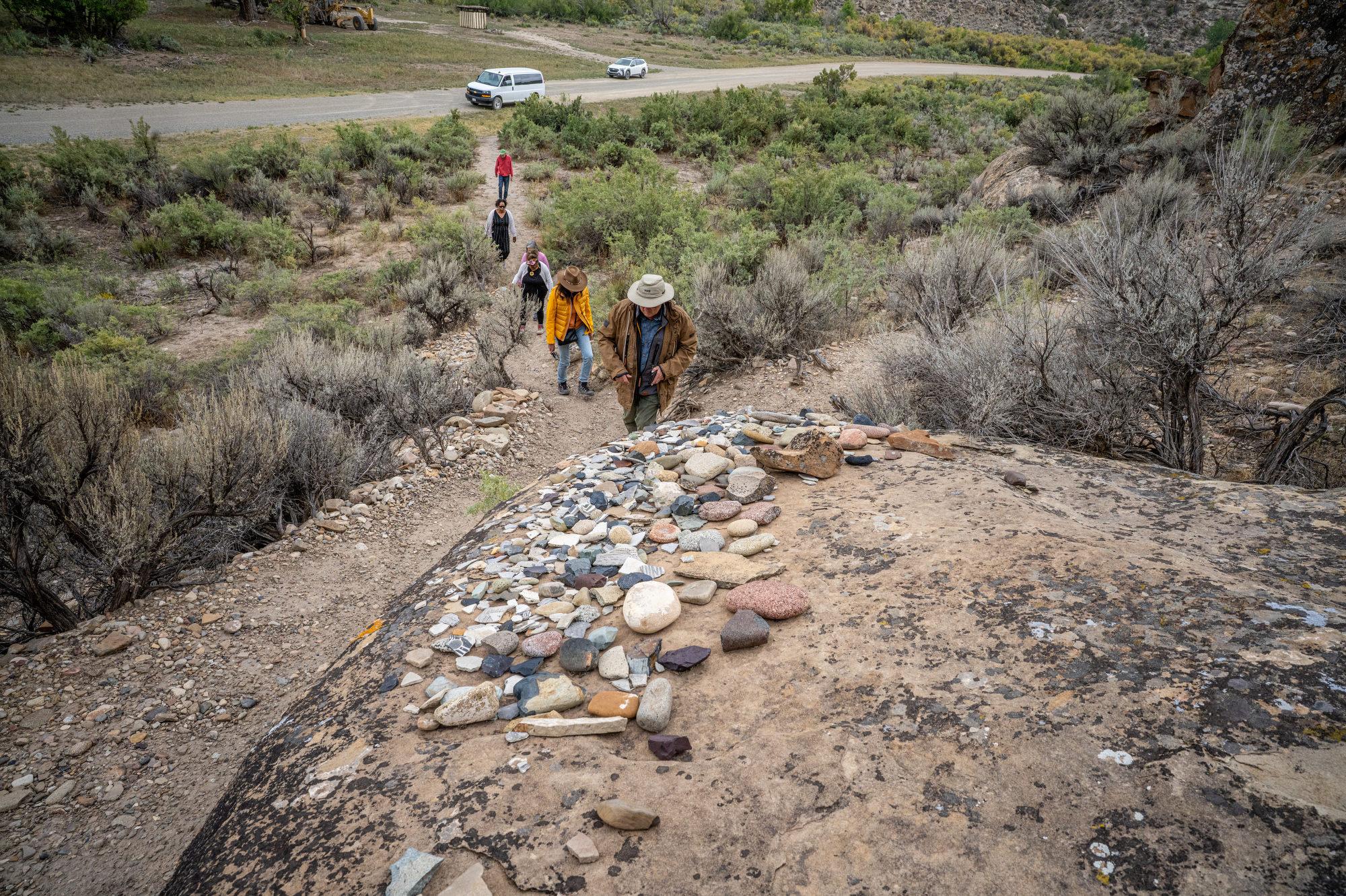
Colorado was awarded the 1976 Winter Olympics, said “no thanks” after major opposition, and the games went to Innsbruck, Austria, instead. We talk with Rob Cohen, who leads a group that wants Colorado to bid for the games again. His exploratory committee has its eyes on 2026 or 2030. What could the Olympics do for Colorado? How much money are we talking about? What doesn’t the state have that it might need be to be competitive? And, perhaps most importantly, does the rest of Colorado even want the games at all? Take this online survey about a future Denver Winter Olympics.
Cohen on what the Olympics might do for Denver and Colorado:
"Well, what we're really trying to do as the exploratory committee is look at, first of all, could we host the games? So do we have the logistics and the venues and the capabilities to do it but the second piece is should we host the games, which is really get to the question of is it something that the public wants and what are the benefits of it. Some of the things that we're looking are, for instance, if we had an Olympic village, could we use it to solve the affordable housing problem that we have in Colorado both in the city as well as in the mountains."
On what I-70 traffic might be like during the games:
So an Olympic Games, every current Olympic Games with the exception of one has used a four lane interstate or something smaller to utilize the Olympic Games. It's a 17-day event, so we don't really need to change I-70 for the Olympic Games itself, but could it be a catalyst to lead to discussions that help us solve a long-term problem that we need to solve for the everyday life of the people who live in Colorado.
On whether the public even supports he idea:
If there's overwhelming evidence that the community does not want the games, then the games would not be successful here. But what we want to make sure is that we're not only hearing from the minority people who are in favor of, or the minority people who are against, but that we really have a good pulse on what everybody in the state of Colorado is interested in.
Read: Full Transcript
Ryan Warner: This is Colorado Matters from CPR News. I'm Ryan Warner. Denver went all out in its bid to host the 1976 Winter Olympics creating a promotional film as far back as 1964. Narrator: Nestled against the great Rocky Mountain Range lies the city of Denver, United States candidate for host city to the 1976 Winter Olympic Games. RW: Denver was chosen, but not everyone wanted the events fearing the cost and the toll on the environment. There was a statewide vote and Colorado withdrew. The '76 games ended up in Austria. Fast forward to today and Denverites are considering a new bid. Rob Cohen, whose day job is leading a financial firm, was tapped to head the exploratory committee. Rob, welcome to the program. Rob Cohen: Thank you very much. Good morning. RW: The governor and a Denver's mayor initiated this effort. You're looking at a bid for 2026 or 2030, both Winter Games of course. What could the Olympics do for Denver and Colorado? What might the state get out of it? RC: Well, what we're really trying to do as the exploratory committee is look at, first of all, could we host the games? So do we have the logistics and the venues and the capabilities to do it but the second piece is should we host the games, which is really get to the question of is it something that the public wants and what are the benefits of it. Some of the things that we're looking are, for instance, if we had an Olympic village, could we use it to solve the affordable housing problem that we have in Colorado both in the city as well as in the mountains. RW: You would need sites both in Denver and up near the resorts, I suspect. RC: Right, and both of those communities are struggling with affordable housing, employee housing in the mountain and then obviously within the city and County of Denver, as well as metro wide. Also, transportation is a major issue in our state. RW: It's hard to get up to the mountains now, let alone with Olympic Games. RC: Yeah, and so an Olympic Games, every current Olympic Games with the exception of one has used a four lane interstate or something smaller to utilize the Olympic Games. It's a 17-day event, so we don't really need to change I-70 for the Olympic Games itself, but could it be a catalyst to lead to discussions that help us solve a long-term problem that we need to solve for the everyday life of the people who live in Colorado. RW: All right, what else do you think the benefits could be for the state? RC: Well, I mean, besides the quality of life, having events like this is something that communities rally around and create excitement for them and pride in their community. It creates regional cooperation amongst governmental entities to work together in ways that they're not used to. It RW: Well, I think there are a lot of folks who would fear that there aren't long-term economic benefits, that in fact host cities have lost money in Olympic history. RC: I think people tend to look at the stories of cities that have lost money. RW: It seems natural that they would do that. RC: Yeah, it's natural, but they don't look at the cities that have made money. Since 1960, every city in the United States that's hosted the games has ended with a surplus in their operating budget for hosting the game. Salt Lake City ended up with a $90 million surplus that they're still using today from the 2002 games to benefit their community and the citizens that live there. RW: Are there economic deal breakers that mean this deal would not go forward? That is to say is there some threshold for the amount of tax money that would go towards hosting the games that you're just unwilling to cross? RC: Yeah, no question. The exploratory committee has created criteria and they're very strong criteria. One of that is around the venue constructions. We don't want to build any venues that we wouldn't need regardless if we hosted the games. RW: There's also a history of the venues being built for the Olympics and then sitting in decay in the decades that follow. RC: Correct, and so any venues that we don't need permanently, one of the deal breakers for us is they have to be built as temporary venues. They can be built and then taken down. If you look at things like the swimming trials that take place in Omaha, Nebraska, they actually build a swimming pool inside a basketball arena. Then when the event is over, they sell the swimming pool to university or college who's looking for a pool. We're looking at those same kinds of models here. Could there be an after use for the temporary venues? And then obviously, the other deal breaker for us is we're looking at a privately financed games. RW: Privately financed entirely? Not a tax dollar going towards something like this? RC: Well, it's always difficult when you say not a tax dollar, because even events that you have here every day like a concert or a Broncos game or whatever, there is police support and fire support and there's city support that goes into that. As far as what we're looking at is no taxpayer support into the operating budget of the Olympic Games. We're trying to fund that. Part of the new model that a lot of people don't know, there's the old story, which happened in 1976, and there's the new story of what's going on with the Olympic movement now. The IOC now contributes money to the winning cities, so in 2026 they've already announced that they're going to contribute $950 million to whatever city wins that Olympic Games. So we would use that, you would use ticket revenue, you would use merchandising and sponsorship dollars to be able to fund the operating budget for the games. RW: So if there's a surplus, as you said there could be, whose surplus would that be? RC: That would be the community's surplus. RW: The community's? RC: The goal of the committee is to look at can we privately finance the games, create a surplus that then would be put back to use to create legacy in our own community. RW: You're listening to Colorado Matters. I'm Ryan Warner and we're talking about a possible, possible bid for the Olympics in Colorado that would occur in 2026 or 2030 for those games. Rob Cohen joins me. He was tapped by the governor and Denver's mayor to head the exploratory committee. I want to say that you are launching a website this week for folks to comment on this potential bid. We put out our own call on Twitter, not scientific by any means, but most who responded told us that they oppose the idea. Here's a tweet we got from Eric Elkins of Denver. "No thanks. It's a disaster for infrastructure and a drain on the economy. It's a vanity play and Denver is a gem that doesn't need the extra attention." Generally I'd say there was a theme in these tweets about concerns over more growth. Denver, the Front Range, already growing at such a fast clip that this would only exacerbate things. How do you respond to that, Rob Cohen? RC: There's a lot embedded in those comments. First of all, as far as growth, Denver voted down the Olympics in 1976 and we grew anyway. Other cities have hosted the Olympic Games in the United States, like a Lake Placid. I'm not picking on them, but they haven't had the growth that Denver has seen. People don't move to cities because you host Olympic Games and communities don't grow because of the Olympic Games. RW: So you're saying there's no evidence to support that games brings growth or not? RC: There's no correlation between an Olympic Games and growth. RW: Has that been studied? RC: I don't know about a scientific study, but we certainly looked at cities that have hosted the games and taken a look at that and really tried to figure it out. RW: We mentioned earlier that Denver won the '76 bid, then pulled out. A while back I spoke with an economist, Victor Matheson, who has studied mega sporting events, and he said Denver started a trend. Cities like Boston, Toronto, Oslo, Stockholm decided against a bid because of costs. Do you think that there are still hurt feelings at the USOC, a reluctance to choose Denver because we sort of left the games at the altar? RC: We've certainly as part of our processes have had discussions with both the IOC and the USOC. RW: What do they sound like? RC: There are certainly people who still talk about it, but most people have said that was 50 years ago. The Olympic movement is different. Denver is different. If people look at Denver back in 1976, we essentially had one professional sports team with one venue. The Denver Nuggets were part of the ABA, so they weren't even in the NBA today. Then you fast forward today and we have a lot of the infrastructure that we've built for our everyday life, and the new model of the Olympic Games is they're looking for communities where they can plug into the infrastructure that's already been RW: As opposed to starting from scratch? RC: As opposed to starting from scratch. RW: USA gymnastics and USA swimming have been rocked by sexual abuse. Of course the doping scandals go deep. Is it just less desirable to host the games than it used to be? A sort of patina? RC: I think there are aspects of that. Certainly nobody feels good about those events and what's happened. But I think what people miss is if you go back and look at the Olympic values, if you look at the Olympic Charter that was written in 1896, it talks about fair play, men and women competing equally. It talks about discrimination, so regardless of race and religion. It talks about clean sports, so anti-doping. It talks about truce, laying down arms to compete in the name of sport. Even today we look at Korea, where you have North and South Korea next week are going to march together in the Olympic Games. They're going to put a unified team on the ice to compete in hockey. So these are values that I think resonate, that are probably maybe more important in today's world than they ever have been. So I think that you have to look at both sides of it and really understand the values and what's good in the Olympics, and you also have to understand what's not good. RW: What if there's no snow in Colorado? RC: The majority of the events, obviously, snow is important, but most of the events, they want man-made snow at a certain texture and a certain temperature. So even when you look at skiing, most of the downhill and Alpine types of races are done on ice, as opposed to true snow and so they can do that with man-making abilities, if we really get that desperate. RW: Let me leave you with this question, do you want the games, personally? RC: Well, I've told everyone, I love sports, I love the Olympic Games, but I love Denver more. And so I take this job very seriously, everyone seems to think we've already made our decision. We're truly, want the input of the community. We want to make a decision that's in the best interest of Colorado for today and in the future. RW: So would that be a percentage thing? In other words, if the comments come in, and you're not revealing the comments yet, it's still pretty early. If the comments come in and they're percent overwhelmingly against the games, or for the games, would that be what the decision is based on? Or is there some- RC: If there's overwhelming evidence that the community does not want the games, then the games would not be successful here. But what we want to make sure is that we're not only hearing from the minority people who are in favor of, or the minority people who are against, but that we really have a good pulse on what everybody in the state of Colorado is interested in. RW: Alright. At CPR.org, we'll post a link so you can offer your input. Thanks, Rob, for being with us. RC: Appreciate you very much having us on. RW: Rob Cohen is CEO of IMA Financial Group based in Denver. And more importantly for our sake here, he chairs the Olympic and Paralympic Winter Games Exploratory Committee. This is Colorado Matters from CPR News. |








